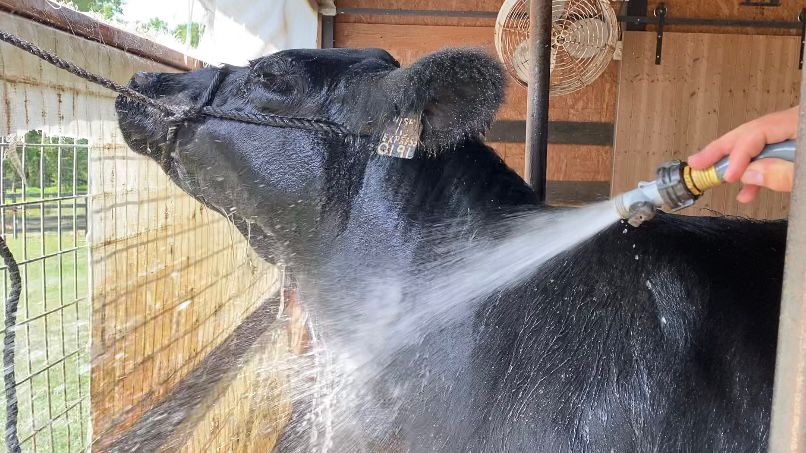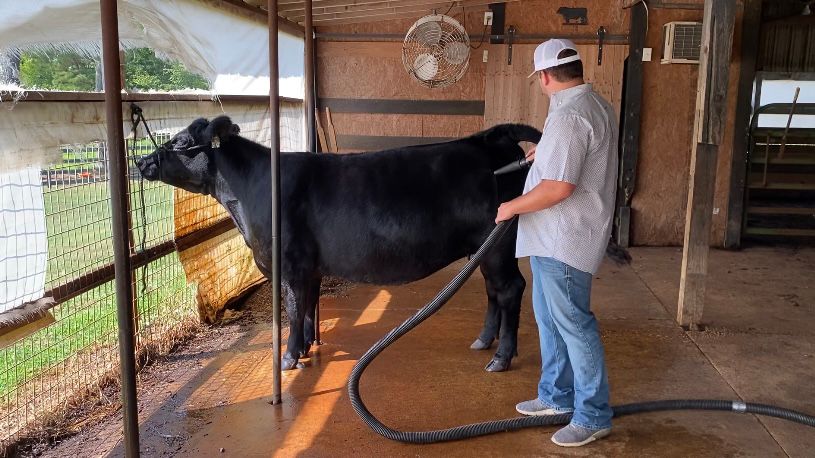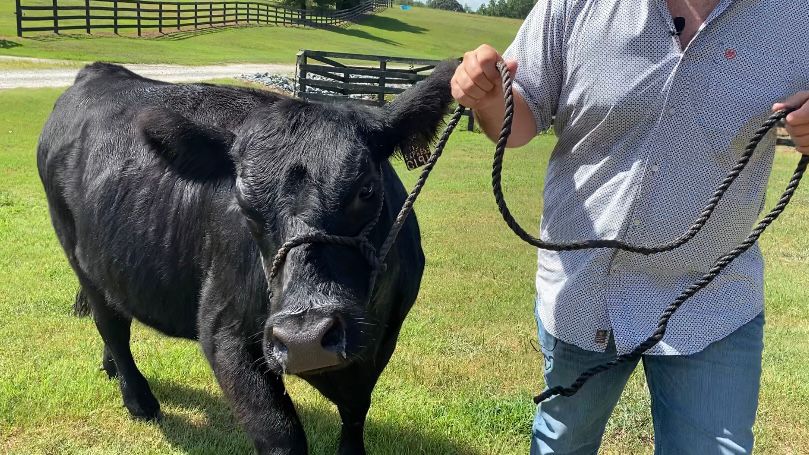JOHNSTON COUNTY, N.C. — Livestock exhibitors are gearing up for the competition of the year with only a month left to go until the North Carolina State Fair begins in Raleigh.

Livestock exhibitors work with their projects in the months leading up to the state fair in October
Exhibitors must be under the age of 22 in order to compete in the junior category
There are categories for cattle, swine, goats, poultry and sheep
It's hard to say what people enjoy most about the state fair. From the food to the rides and the entertainment, and while many may spend all year dreaming of deep fried everything, livestock exhibitors spend all year raising an animal for one walk in the arena.
“I love her a lot so, I know her pretty well. She's got a bit of an attitude sometimes, but the bond you develop with your show projects throughout the years is definitely one you value,” said Justin Wood, a junior livestock exhibitor.
Wood is a livestock show veteran going into his last year in the junior ring, and as the years have gone by he's realized it's not so much the arena he enjoys but everything that happens behind the scenes working with animals in the barn.
“I've been doing it since I was 7 or 8 years old, so I've had a lot of practice,” Wood said. “Seen a lot of cows come and go through this barn. A lot of state fair winners, a lot of state fair losers.”

The Wood family travels to shows all over the country with their cattle, but the state fair holds a special place in their season as the cherry on top of a great year.
“More than anything it's the people that make this all worthwhile,” Wood said. “It's fun working with these cows, and I do love doing that, but the connections, the people I've met, the friends I've made. The extended families, the not blood-related families that you get to make along the way, especially at the state fair.”
Preparing a heifer for the show ring involves much more work than most people would expect, and Wood spends hours each week feeding, grooming and working with his cow.
“Purely from a showmanship standpoint, having nothing to do with the cow, I think it's important that they're clipped right, they're washed right, that their hair coat and their hide is clean,” Wood said. “Grooming is important. You can have really good hair, but if you don't know how to feed or manage a cow, hair doesn't really do you much good at the end of the day.”
He's been doing it for years now, but the lessons he learned as a younger competitor have stuck with him over the course of time — things like responsibility, humility and the value of hard work. Raising any animal for the fair, whether it be cattle, swine or small animals like goats, gives kids a glimpse into what a job in the agriculture industry might look like.

“Agriculture is not for everybody, I get that,” Wood said. “It takes all kinds of people to make the world run, but people in agriculture and people that grow up in agriculture — it takes a lot of work, it takes a lot of time and it teaches you how to work for stuff.”
Exhibitors have to be under the age of 22 in order to show in the junior livestock category at the state fair, but for all those adults like Wood and his family who still love to put in the work, there is an open show category where you're never too old to walk into the ring.
“I've done a lot of 'lasts' this year for me,” Wood said. “It's been hard, but it's been nice. I'm looking forward to being on the other side of it ... this won't be my last state fair, absolutely not. It'll just be a different perspective from now on.”









